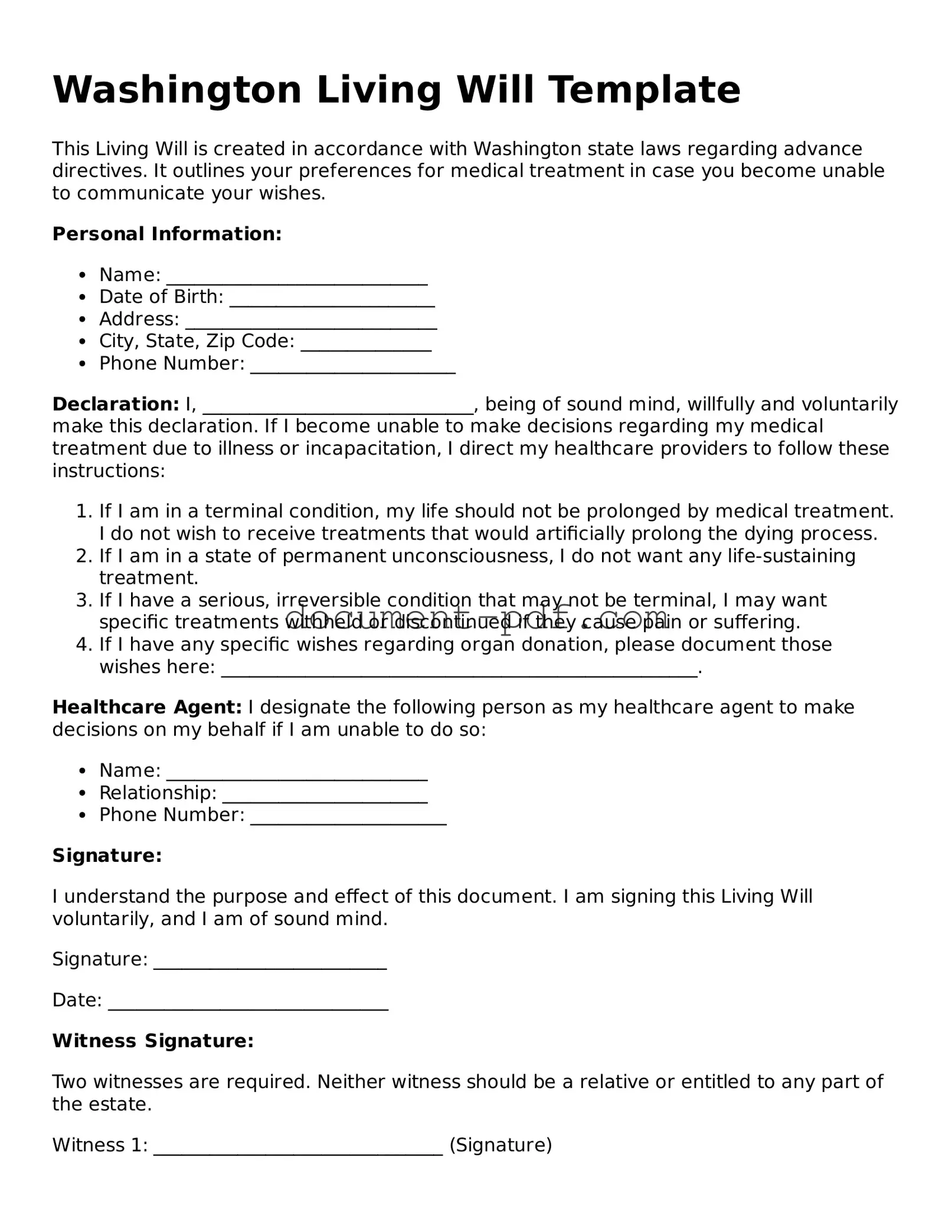Attorney-Verified Washington Living Will Template
A Washington Living Will form is a legal document that allows individuals to outline their preferences for medical treatment in the event they become unable to communicate their wishes. This form ensures that your healthcare decisions are respected, providing peace of mind for you and your loved ones. Take the important step of filling out your Living Will by clicking the button below.
Access Living Will Editor Here

Attorney-Verified Washington Living Will Template
Access Living Will Editor Here
Finish the form without slowing down
Edit your Living Will online and download the finished file.
Access Living Will Editor Here
or
Click for PDF Form
